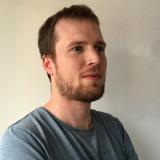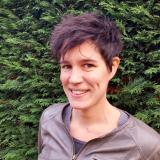Human vs AI: What is true Intelligence?
Ever felt frustrated by a chatbot's shortcomings and labeled it 'stupid'? Delve into why we perceive it so, and what defines our own intelligence at this symposium, where we explore the dynamics between human and artificial intelligence. (SG Certificate*)
Time: 15:00 - 17:15 hrs.
Admission is free, registration required.
Register for this symposium here
Artificial General Intelligence vs. Human Intelligence
Imagine a world where AI perfectly mirrors human intellect. It's a world where algorithms perform on the same stage as human thoughts, where computer generated cognition knows no bounds, and where AI perfectly mimics our human brains. Yet, amidst dreaming of this technological future, one can't help but wonder: Can AI ever truly mimic human cognition? Or will some forms of human intelligence always be needed, and if so, for what exact purposes? Will AI ever truly be able to understand the nuances of human emotions, the depth of human experiences and the intuition that define human intellect? Or will artificial intelligence simply carve its own path, surprising us with achievements we never even thought possible?
What is intelligence?
As we think about these questions, we're dealing with the essence of intellect itself. What defines intelligence? Is it just about solving complex problems, or does it include understanding feelings and caring for others? Can you even capture, measure and quantify intelligence with tests, or is it too complex for that?
At this symposium, three Tilburg University scholars, each coming from different academic backgrounds, will try to answer these and many more questions. Besides these talks, the audience will be asked to join in actively through a Challenge Based Learning session, in collaboration with Tue Innovation Space.
Digital Sciences for Society
This symposium is organized in collaboration with the Tilburg University Digital Sciences for Society program: as a university with unique expertise on the interface of technology and socially relevant research, Tilburg University gives impetus to further developing and integrating the digital sciences with its Digital Sciences for Society program. Academic Lead of the program, prof.dr.ir. Boudewijn Haverkort will open the symposium with a few opening words.
For students keen on exploring digitalization through an interdisciplinary lens, like we do at this symposium, it's good to know that a new interfaculty Digital Sciences for Society Minor will commence in the upcoming academic year 2024/2025. This minor is open to all Bachelor students and exchange students at Tilburg University, as well as for Bachelor students at other Dutch universities.
For more information about the minor you can reach out to dr. Ching-Chu (June) Sun.
Speakers
-

Gert Meyers
Postdoctoral Researcher, Tilburg Institute of Law, Technology & Society (Tilburg University)Dr. Gert Meyers obtained his PhD at the University of Leuven, where he conducted research on the application and introduction of Big Data and behavior-based personalization in insurance practices. He has a background in performativity studies, the pragmatist sociology of markets and governmentality studies. His research interests include personalization in insurance, the role of economic expectations of technologies, economic experimentation with new technologies and shifting solidarities in European societies. He is currently involved in the 'Blockchain and the Network Society' NWO-MVI research project, where he investigates the social implications of Blockchain technologies for the reconfiguration of value(s) (conflicts) and the rule of law.
-

Roos Slegers
Assistant Professor, Philosophy department (Tilburg University)Dr. Roos Slegers’ research interests sit at the intersection of philosophy, literature and economics. She is particularly interested in late 18th Century authors like Adam Smith and Mary Wollstonecraft and the relationship between their work and conduct literature, the novel and the rise of the middle class. She also spends considerable time thinking about neoliberalism, free markets, bureaucracy and organizations, and in interested in phenomenological approaches to uncanny robots and modern tech in literature and pop culture. Her teaching style is best described as interdisciplinary, applying rigorous philosophical thinking to (contemporary) issues in business, economics, politics, science and pop culture.
-

Chris Emmery
Assistant Professor, Department of Cognitive Science and Artificial Intelligence (Tilburg University)Dr. Chris Emmery works on algorithmic monitoring and auditing as part of the Tilburg Algorithm Observatory, and is interested in the (harmful) effects of intelligent systems on our lives; systems that uncover our personal information, monitor and change our behavior, subtly restrict our exposure to information, and treat us unfairly. He has a multidisciplinary background in humanities and computer science. His work critically analyzes the current, and more distant impact such algorithms have on society. I'm a strong advocate of a user-centered, open-source approach to ML, and the automation of society in general. He successfully defended his dissertation “User-centered Security in Natural Language Processing” in January 2023.
More information
This symposium is organized by Studium Generale in cooperation with Digital Sciences for Society.
Contact: Hannah van den Bosch (Studium Generale).
* For students, this lecture may count towards the SG-Certificate. Check the SG-Certificate website for all the terms and conditions.
